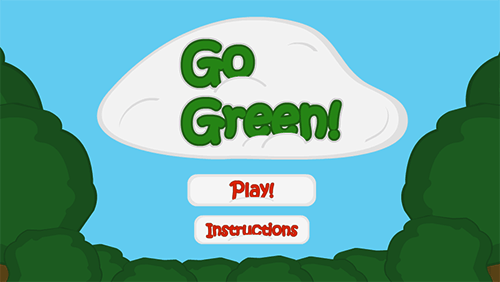
By Jessica Oaks
It may seem a touch hyperbolic to say that mobile apps and video games can have any impact on the environment, but in fact, that is the very goal of numerous apps now available for iOS, Android and Windows devices. The idea is simple: Through gamification, an app can promote sustainability, recycling and other green initiatives.
Just like exercise, healthy eating and doing your taxes on time, recycling, driving less and reducing your carbon footprint tend to be things that you know you should do, but for whatever reason never make the time for. Apps like Recyclebank aim to change that, by making actions that have traditionally been seen as burdensome fun.
The tools to promote recycling are here
Everyone can agree that recycling, reducing and reusing are sound principles that can have a positive impact on the world around us. The less that we consume, the less resources need to be harvested and produced, which has the side effect of reducing strain on the natural environment. And yet, so many people fail to take proper steps, even when they recognize their benefit. Gamification provides incentive by making recycling, reducing and reusing fun and competitive. And gamification is made possible through the advent of mobile technology.
Thanks to continually advancing mobile technology like the Snapdragon mobile processor, today's tablets and smartphones are more capable than ever. Though many people use their devices almost exclusively for checking in on Facebook and posting photos to Instagram, it's easy to forget that these devices are actually quite robust and are capable of running a wide variety of applications. These applications include project management tools, social tools, games and, yes, even tools that help people and companies go green. It's simply a matter of using them. The Internet of things and the mobile device has opened up the world to a range of new possibilities.
But does it work?
Well, it certainly can. As with many initiatives, it's more about participation than whether or not the capability exists. But green applications and gamification tools are starting to have an impact on the world around us. Greenbean Recycle, a small recycling startup primarily located on college campuses, has claimed to have recycled more than 12,000 pounds of glass and plastic bottles through the use of its recycling vending machines. Considering the company's somewhat small footprint, this is no small feat. Users are incentivized not only through easily accessible and convenient recycling machines, but also points that can be redeemed for actual goods at participating retailers.
And then there is Opower, an energy software company that provides utility data to customers not only for their homes, but the homes of their neighbors and community as well. Though revenue has slowed as of late, the company got off to a good start, helping consumers save more than 2 terawatt hours of energy for a total savings of approximately $200 million in energy bills. Through gamification and data reports, Opower was able to get consumers to save enough electricity to power 200,000 homes. Obviously, the more people participate in a program, the more of an impact it can have, but when one looks at the numbers, it's hard not to admit that these apps can make a difference.
Is gamification the future of recycling?
As the number of consumer products manufactured each year continues to grow, and the consumer marketplace gets ever larger, recycling initiatives will become more and more important. Gamification tools and recycling programs may not be the sole answer to the problem of global warming, which poses a real and immediate threat, but they can make a difference. Through environmental initiatives, it may be possible to halt the rising tide.
Jessica Oaks is a freelance journalist who loves to cover technology news and the ways that technology makes life easier. She also blogs at FreshlyTechy.com. Check her out on Twitter @TechyJessy.
TriplePundit has published articles from over 1000 contributors. If you'd like to be a guest author, please get in touch!














